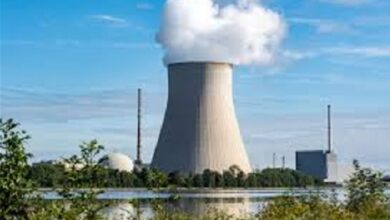Difference between boiling and evaporation Similitudes and FAQs
Boiling and evaporation
In this article we will provide you the difference between boiling and evaporation, Similitudes and FAQs.
What does boiling mean
Boiling is a thermodynamic phenomenon that occurs when a liquid reaches its boiling temperature . This occurs when the vapor produced by heating the liquid begins to escape to the outside in the form of bubbles. The exact point at which this happens depends on the type and pressure of the liquid, but for pure water at 1 atmosphere, it is 100ºC. Boiling releases energy into the environment and also contributes to mixing the components dissolved in it; furthermore it is widely used commonly to boil water before drinking or cooking with it.
what does evaporation mean
Evaporation is the process in which a liquid turns into a vapor. The increase in the temperature of the liquid causes some molecules to begin to have enough energy to leave the liquid state and go into the gaseous state. When there is more heat, more molecules manage to get out, which causes the vapor pressure (the pressure exerted by the molecules in the gaseous state) to increase until it equals the atmospheric pressure. This means that all the molecules will be converted to gas, thus completing the evaporation process .
Similarities Between Boiling and Evaporation
Both words are related to the change of state of matter. Boiling refers to the transition from a liquid to a gaseous state, while evaporation is a much slower process, by which the liquid goes directly to the gaseous state without the need for it to reach its boiling point. In both cases there is a release in the form of vapor and an increase in temperature occurs; however, during boiling the elements begin to mix with each other, generating visibly large bubbles. In addition, for an evaporation process to occur, it is not necessary to raise the temperature as much as if it occurred with a boiling process.
Differences between boiling and evaporation
Boiling and evaporation are two physical energy transfer processes that occur in liquids. Boiling is a sudden change of state from liquid to vapor, which occurs when its temperature reaches the critical point. The resulting steam releases a large amount of heat energy to the surroundings. On the other hand, evaporation is a much slower process where individual atoms in the liquid absorb energy to evolve into a gaseous state. This causes the gradual disappearance of its volume without producing any abrupt change in its temperature or releasing large amounts of energy to the environment as it does with boiling.
Frequent questions about boiling and evaporation
What is boiling and an example
Boiling is the process of vaporization of a liquid due to the elevation of its temperature until it reaches its boiling point. A common example is boiling water to make tea or coffee.
What is boiling in water?
Boiling is the temperature point at which water gets hot enough to turn into steam. Under normal pressure conditions, the water temperature at which this occurs is 100 °C (212 °F).
How does the boil occur?
Boiling is a form of vaporization in which the liquid reaches its boiling point, where it rapidly turns into a vapor. This happens when the vapors in the liquid have enough energy to overcome intermolecular forces and be released as a vapor. As the temperature continues to rise, more molecules are pulled apart until they are all free and the entire liquid has turned to vapor.
What is the boiling temperature?
The boiling point is the temperature at which a liquid changes from a liquid to a vapor. The boiling temperature varies depending on the liquid, but is generally between 100 and 400 degrees Celsius (212 and 752 degrees Fahrenheit).
What evaporation?
Evaporation is the process by which a liquid turns into a vapor as its temperature increases. It is a form of heating that occurs when liquids absorb energy from their surroundings in the form of heat. This causes the molecules of the liquid to move faster and eventually come out as vapor.
What is evaporation and an example?
Evaporation is the heating process by which a liquid turns into a vapor. A common example of evaporation is when a freshly brewed cup of coffee cools after a few minutes and most of the water present evaporates.
How does evaporation happen?
Evaporation is the process by which water turns into vapor by absorbing heat from its surroundings. The process begins when the water molecules at the surface of the liquid experience enough energy to break the strong bonds between them, allowing them to evaporate and form vapor particles absorbed by the surrounding air. This energy usually comes from the sun or the wind. Evaporation can be very fast, as when a lake dries up after a particularly hot summer, but it can also be slowly, as when a bucketful of water gradually evaporates over several days.
What is evaporation for elementary school kids?
Evaporation is a change of state process in which a liquid turns into a vapor. Children can understand this as when moisture in the air causes clothes to feel damp or hot when they come out of the dryer. This is because liquids, such as water, absorb energy to change from a liquid to a gas state.




